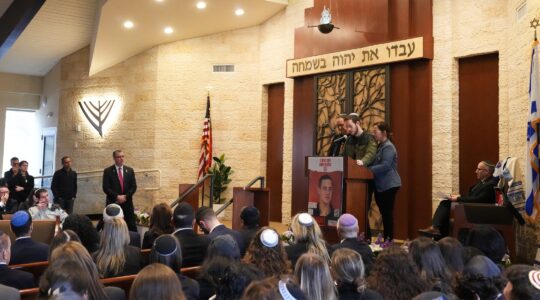MOSCOW, Oct. 20 (JTA) – Latvian officials are not yet ready to end their investigation of a suspected Nazi war criminal living in Australia. The Latvian Prosecutor General’s Office last week announced that it would launch a new investigation of Konrad Kalejs in order to discover “the actual circumstances of the case.” The office also sent letters to the justice ministries of the United States, Canada and Australia seeking information about Kalejs’ past. Kalejs, 84, is alleged to have been a member of the mobile killing squad known as the Arajs Kommando, or Latvian Auxiliary Security Police, that collaborated with the Nazi SS during World War II. He is accused of having participated in the killing of 20,000 Jews in Latvia. Kalejs, who moved to Australia after the war and later relocated to the United States, claims that he was a university student during the war. Kalejs was ordered deported from the United States to Australia in 1994. He subsequently fled to Canada, where he lived for three years. He was deported by Canada to Australia in August. Australian officials have said it is unlikely he would be prosecuted there. Along with announcing the new investigation, the Latvian Prosecutor General’s Office rebuked the prosecutor who had been in charge of the Kalejs investigation, Uldis Strelis, saying it was “categorically disassociating” itself from Strelis’ position. Last month, Strelis said his investigative team had found no evidence to support any of the allegations against Kalejs. After issuing his findings, Strelis made a number of anti-Semitic comments that prompted Latvian Jewish leaders to call for his dismissal. Strelis’ unwillingness to prosecute Kalejs, say Latvian Jewish activists, is symptomatic of the situation in post-Soviet Latvia, where most people view the German occupation during World War II as a lesser evil than the subsequent period of Soviet domination. About 75,000 Jews, or more than 90 percent of the country’s prewar Jewish community, were murdered during the war by the Nazis – with help from local residents.

Help ensure Jewish news remains accessible to all. Your donation to the Jewish Telegraphic Agency powers the trusted journalism that has connected Jewish communities worldwide for more than 100 years. With your help, JTA can continue to deliver vital news and insights. Donate today.





